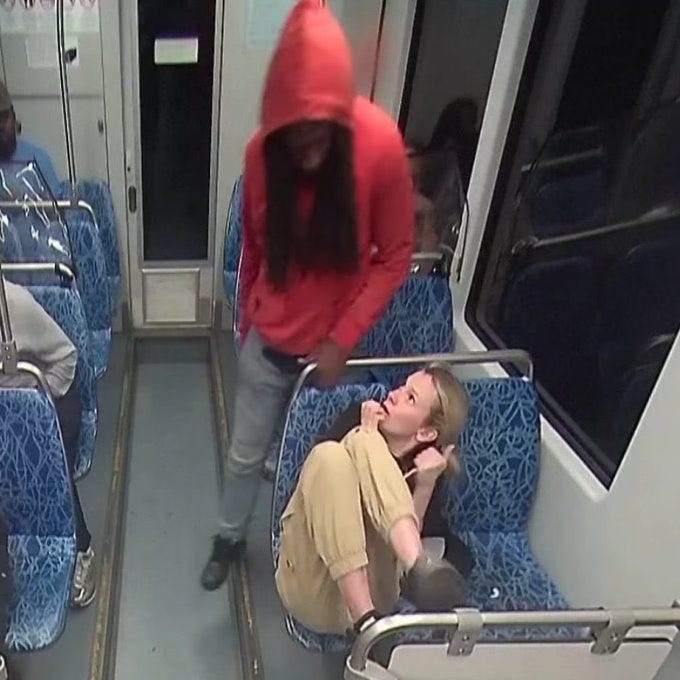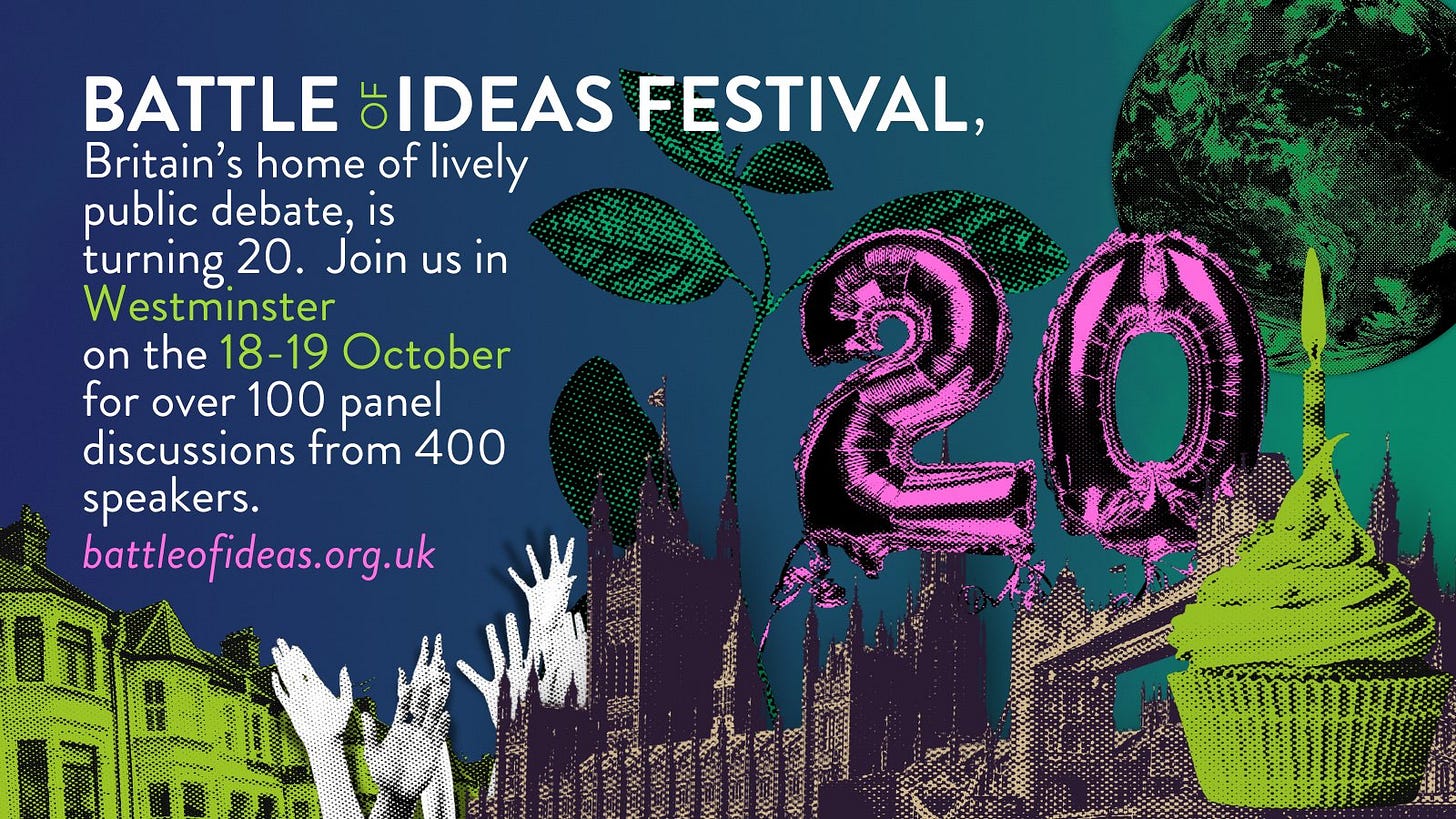The killing of Iryna Zarutska shows the mainstream media’s total moral collapse
Jacob Reynolds argues that there is more interest in narrative control than in dealing with the issues laid bare by this murder – and that of Charlie Kirk.
The article below was written before the appalling assassination of Charlie Kirk, which is rightly being considered as a grim companion-piece to the killing of Zarutska. These two events are not unconnected: the same ideology that had made our cities more dangerous has demanded the physical destruction of political enemies.
The media reaction already mirrors that of the reaction to the subway killing. The New Republic, an American left-wing publication, tweeted the news of Kirk’s shooting by describing him as a ‘MAGA troll’ and later ran a piece complaining that ‘The Far Right is already blaming the left for Charlie Kirk’s shooting’. An MSNBC presenter suggested that the shooting was the work of a Kirk supporter firing in celebration, and that Kirk had effectively brought his death on himself. (The presenter has been fired.)
We see once again that rather than reckoning with events, the media attempts a desperate and dangerous game of narrative control.
It took 18 days for the New York Times to comment on the brutal killing of Iryna Zarutska, a 23-year-old Ukrainian refugee, on a train in Charlotte, North Carolina. When it finally did, the article was a monstrosity of moral evasiveness. ‘A Gruesome Murder in North Carolina Ignites a Firestorm on the Right’, ran the headline, with the piece engaging in a bizarre detour to talk about the ‘egregiously exaggerated stories about Black criminality’ in the Jim Crow era. Elite barometer Politico went with ‘Ukrainian refugee killed in North Carolina gets dragged into political messaging war’, while Axios complained of ‘MAGA influencers seeking to elevate the issue of violent urban crime’. CNN, not to be outdone, produced this horrific example of the shiftiness of the passive voice: ‘How the lives of a Ukrainian refugee and a Charlotte man with a criminal history converged in a fatal stabbing.’
This blatant attempt at narrative control can only be counterposed with the appalling reality of the crime, broadcast across social media. The attacker, Decarlos Brown Jr, is a 14-time offender who was repeatedly set free by authorities under the influence of what Trump aptly called ‘catch and release’ social-justice policies. The video, which is genuinely difficult to watch, shows Zarutska taking a seat in front of him before he jumps up and repeatedly stabs her in the neck. A horrifying still shows the terrified young woman looking up in helpless disbelief, before cowering in her seat, cradling her neck as she bled to death. The other passengers sit, blind or cowed by what had occurred, until she slumps down, apparently dead.
Clearly, the regime media was concerned above all with ensuring that no one draw any political consequences from the stabbing, which has been going viral on social media for almost a whole week. The issue for these outlets, when it became impossible to simply ignore the issue, was to ensure that widespread concerns about urban criminality, ineffective justice policies and ‘defund the police’-style withdrawal of law and order prompted by the Black Lives Matter movement did not get a hearing. Such concerns are merely ‘right-wing firestorms’ and part of a regrettable ‘political messaging war’.
Yet the event could well be a watershed in America’s reckoning with the legacy of escalating urban dangerousness. Looking visibly shocked and angry, Donald Trump released a video raging against the ‘slaughter by a deranged monster who was roaming free after 14 prior arrests’. He called for America’s cities to reverse the policies which have caused such an obvious deterioration in basic safety.
The public anger, visible on social media, is of an unusual intensity. Some have suggested that this is the American Right’s George Floyd moment – a unique case that encapsulates a wider public mood that something is deeply, horribly wrong. Those who try and dismiss this event as just a ‘one-off’ have little to stand on, given the way in which another ‘one-off’ case, that of Floyd, prompted an almost worldwide ‘reckoning’ of racial politics.
Indeed, aside from the breakdown in law and order, the case touches on many familiar issues: the sense of atomisation in American society, encapsulated by the passivity of fellow passengers on the train; concerns that DEI-style policies have begun to let violent criminals off the hook simply because they are black; and, above all, the complicity of mainstream media outlets in trying to bury these issues.
Of course, many of those jumping on the story are opportunistic, and the freedom offered by Elon Musk’s X to comment has been used by some to voice truly vile racism. Many of these commentators have been either indifferent to, or in fact supporting, the countless murders of Ukrainian women in Ukraine by Russia’s terroristic invasion.
But such concerns miss the point entirely. It is entirely legitimate for Americans to care about what happens on American trains in American cities. There are also genuine questions about whether the narratives of diversity and victimhood played a role in the killing. Just seconds after the barbaric attack, the video shows the attacker saying: ‘I got that white girl, I got that white girl.’ Are these the ramblings of a madman or an explanation of the thought-process as to why he picked this particular defenceless young woman?
Such concerns are mirrored across the West. Indeed, late August saw the killing of another Ukrainian woman, this time in Germany. A 16-year-old girl was deliberately pushed in front of a train by a rejected Iraqi asylum seeker who had been slated for deportation. (A German court denied the authorities’ request to keep him in pre-removal detention.) The case is, if anything, even more shocking for the complicity of the state in apparently seeking to paper over the crime.
Initially, the case was reported to the family as a ‘tragic accident’ and police even suggested it might be suicide. Only after the diligent efforts of the victim’s mother, assisted by a local AfD politician, did the truth come to light: she was attacked. Had familiar concerns about ‘community tensions’ encouraged the authorities to hush the story up? Ukrainian refugee women in Europe have been the victims of a large number of brutal attacks by asylum seekers. What does it say about our societies that the West – which evidently cannot secure Ukrainians inside Ukraine – cannot secure them in our own cities either?
It is, of course, not predominantly Ukrainians who are the victims of such crimes – even if such cases probably come to light more readily given the juxtaposition of war-refugees being unable to find safety in the West. Even if some crimes are clearly trending down, the prevalence of certain, particularly outrageous, crimes expresses the sense of a wider breakdown of public order.
Amid the awfulness of this appalling crime, there is yet a sign that America possesses the moral resources to grapple with the enormous problems it faces. The Ukrainian government had been in touch with the family of Iryna Zarutska, offering to repatriate her body. The family refused, stating that her wish would have been to be buried in America, a country which had offered her refuge and which she loved. To say that America did not repay the faith she showed in the ‘shining city on a hill’ would be an understatement.
But if America, and the West, want to be equal to the faith shown by people like Zarutska, we need a reckoning. Not just with the policies, in America and Europe, which have created such dangerousness. But also with this attitude, exemplified by mainstream outlets, that prefers narrative control to dealing with the problems everyone can see with their own eyes. The problem with the case is not that the ‘far-right’ are looking to capitalise on it, it is that the media classes have shown they will do almost anything to delegitimise, downplay and evade the obvious issues thrown up by such a brutal attack. This attempt at narrative control is only becoming more outrageous as it becomes more obvious – anyone who can bear to see those awful images from that train is immediately better informed about the reality of urban decay and elite indifference than a thousand New York Times journalists.
After the brutality in Charlotte, the desperate attempt to brush aside all concerns about safety or diversity as right-wing talking points appears more than evasiveness: it is cowardice, a moral void in the mainstream press. In fact, when the consequences of refusing to allow such concerns to come to light are becoming more and more brutal, this attitude of the media comes ever closer to a kind of treason. The media class has effectively declared war on all of us. We have to hold them to account for it.
Reclaiming debate: Battle of Ideas festival
The Academy of Ideas is committed to open debate. The Battle of Ideas festival is THE place to both get to grips with contemporary events and demonstrate your support for a robust but respectful exchange of ideas.
Make sure you get your tickets. Early-bird prices are available until Thursday 18 September. Visit our tickets page here.




People should read that NYT article: https://www.nytimes.com/2025/09/08/us/charlotte-murder-conservatives-crime.html?searchResultPosition=2 as an illustration of good journalism warped by the values of an ultraliberal journalistic monoculture, the reason why Bari Weiss went rogue from it with her Free Press. One example is the fact the whole question of who's the troll, right or left, taints a decent story of the question of how the perpetrator's long criminal/psychiatric history was handled by the system. Unfortunately one can doubt that story's objectivity because of its polemical context.
However, the consideration of whether more or less attention is paid to black crime by the left or right should include the fact that the liberal bias that black crime is significantly a case of racist mass incarceration encourages people to want to document the race of criminal behavior to retort this assertion when liberal trolls are often playing the race card in the discussion of crime. I would paraphrase Rodney King, a black man beaten by cops in the 1992 LA riot, who said "Why can't we all get along?". I say, Why can't we all be objective. That's as boring as Roland Fryer's (black Harvard economist) finding that deadly force by police is not racially disproportionate but excessive force in making more routine arrests is. I believe that weak-kneed analysis pissed off his liberal colleagues.